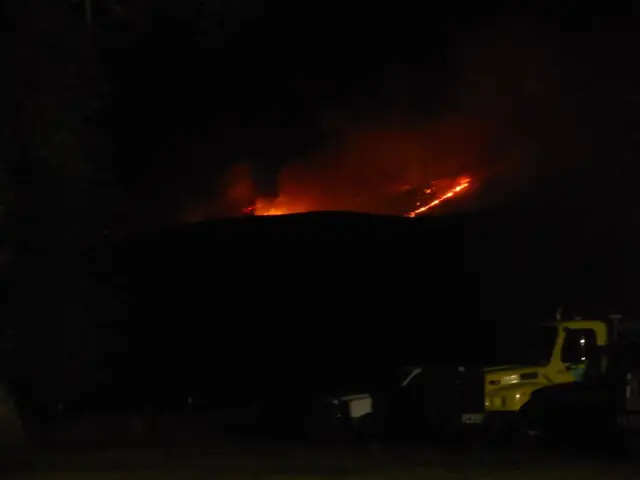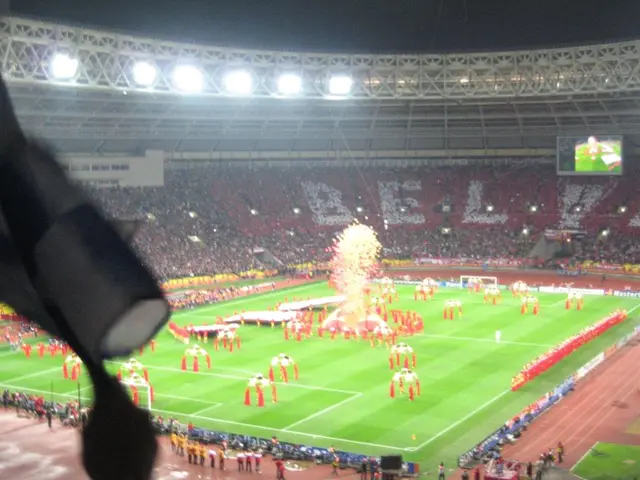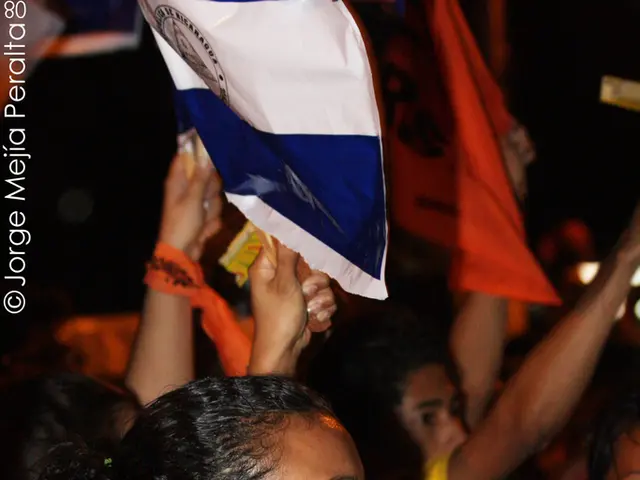Escalation before Diplomacy: Russia Expands Territory amidst Russia-Ukraine Peace Negotiations
Russian Advances in Ukraine: A Quick Fighting Update
The Red Army is making steady advances in Ukraine's Donetsk region this week, gearing up for direct talks with the Ukrainian government in just three days. On Monday, Russian forces claimed the settlement of Kotlyarivka, skirting the border with Dnipropetrovsk. They took Myrolyubivka and Mykhailovka on Wednesday and Thursday, respectively, bringing them within sniper range of the embattled area of Pokrovsk. This aggressive push, even as they prepare to negotiate, shows no signs of slowing.
Ukrainian Intelligence Scoop
According to Ukrainian military intelligence, Russia has been positioning troops for a major offensive, as reported by the Financial Times.
Peace on the Agenda
On May 8, US President Donald Trump proposed a 30-day ceasefire, which was backed by Ukraine's President Volodymyr Zelenskyy and the leaders of Poland, Germany, France, and Britain the following day. However, Russian President Vladimir Putin, after initially promising to think about it, opted for peace talks without any prerequisites on Sunday morning. Zelenskyy has expressed his intention to attend the talks in Istanbul if Putin is present.
Russia's Mixed Signals
Despite Putin's proposal for peace talks, his language has been less than welcoming. He reportedly stated, "The ball is now in the court of the Kyiv government and its curators, who are guided by political ambitions — not their people's interests — in their desire to continue the conflict with Russia..." This sentiment reflects the skepticism held by some Western leaders about pushing Ukraine into negotiations.
Russia is also taking a strong stance in the talks. On Tuesday, Russian Deputy Foreign Minister Sergey Ryabkov insisted on the "denazification of the Kyiv regime," as well as recognition of current realities on the ground. This essentially implies no territorial concessions from Ukraine.
Meanwhile, on Tuesday, almost on the eve of the talks, Putin was promoting Russian-occupied regions of Ukraine to investors, suggesting no changes in these territories. Russian ambassador-at-large Rodion Miroshnik also stated that negotiations need not go beyond the proposals of 2022, which were far less favorable to Ukraine than the current situation.
Western Countermeasures
In response to Russia's aggression, the West has been implementing various sanctions. On Monday, Poland shut down Russia's consulate in Krakow, following an investigation that implicated Russian saboteurs in a fire that destroyed the Marywilska shopping centre last year. On Tuesday, the Council of the International Civil Aviation Organization officially held Russia responsible for the downing of Malaysia Airlines flight MH17 in 2014. On Wednesday, the European Union agreed on a 17th sanctions package restricting 200 tankers used by Russia to evade a ban on its oil exports to the EU. A 18th package is under consideration.
As of now, the peace talks in Istanbul have ended with limited progress and both sides have agreed to continued negotiations. A prisoner swap agreement has been reached, but a ceasefire deal remains elusive. Despite these challenges, the hope remains that future discussions will lead to a resolution of the conflict.
References:1. Reuters2. The New York Times3. Al Jazeera
- The progress of the war-and-conflicts in Ukraine, particularly the Donetsk region, continues to be a breaking news item, with the Red Army advancing and preparations for peace talks underway.
- In the realm of policy-and-legislation, the West has been responding to Russia's aggression with various countermeasures, including sanctions on Russian entities and businesses.
- The culture of diplomacy and politics has been marked by mixed signals, with Russia proposing peace talks while maintaining a hardline stance on policy issues such as denazification and territorial concessions.
- The refugee crisis continues to escalate due to the ongoing conflict, with many Ukrainians seeking safety and resettlement in other countries.
- In the face of these challenges, the general-news arena remains focused on the ongoing conflict in Ukraine, providing regular updates on the peace talks, military actions, and the wider political implications.








